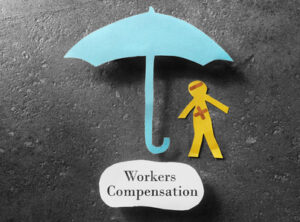Discrimination: Case studies
People can think whatever they like but they have to be careful what they say and do at work. Under the Equality Act 2010, bosses, colleagues, customers and suppliers have to treat all employees fairly in the workplace.

We looked at some recent discrimination cases that you might have seen in the media. These give you some examples of what can go wrong, and what employees can do about it.
Discrimination: Case study 1
Jahnayde Henry got a job as a waitress in the Tattu restaurant in London’s Soho, where she worked a two-week training period followed by five shifts.
However, during this time she was subjected to constant criticism and degrading remarks by deputy manager, Joanne Huang.
For example, Joanne:
- called Jahnayde unattractive
- told her she looked “tired and unpresentable”
- suggested she wear makeup
- described her voice as bland and boring, and encouraged her to liven it up
- watched, checked and criticised her every three minutes
- called her by the incorrect name of ‘Joyce’ several times
As a result, Jahnayde resigned and brought a claim against the restaurant for race discrimination, racial harassment and sexual harassment.
Her claims for direct race discrimination, racial harassment and direct sex discrimination were unsuccessful, however, her claim of sexual harassment was upheld.
At the Employment Tribunal, Judge Glennie ruled that, while it is not unknown for men to wear makeup, it is not a comment that would usually be made to a man. Telling a woman how to improve her appearance would naturally create a humiliating environment and undermine her self-esteem. Therefore, the fact Jahnayde was told to wear makeup is a sex-specific comment and constituted sexual harassment.
Sexual harassment is unwanted conduct related to sex that creates an intimidating, hostile, degrading, humiliating or offensive environment. It can occur even when the intention was not discriminatory.
Discrimination: Case study 2
In April 2021, Debbie Jacka became a trainee surveyor and director of Steren Surveyors Ltd. She had previously partly owned an estate agency with Peter Ellicock, who founded the surveying company.
They had always shared a good working relationship. However, Peter’s wife, Emma, didn’t like the amount of time they spent together during work, such as when Debbie accompanied Peter on site visits because he had dyslexia and she helped him to write up reports.
At one point, Debbie needed an employer reference to apply for a mortgage. As Peter was busy, he asked Debbie to send the reference from Emma’s email address. When his wife discovered what had happened, she wasn’t happy, as she believed it to constitute ‘fraud’.
In August, Debbie and Peter spent most of the day working together on homebuyer surveys. Emma became suspicious because he wasn’t answering his phone, and later that evening she accused the pair of having an affair.
The next day, Peter told Debbie about the accusation, and said she should be “extra nice” to his wife. This left Debbie feeling “distressed and humiliated”.
After returning from annual leave a week later, he told her she could no longer attend site visits with him, discuss non-work-related matters with him, nor meet him outside the office. She assumed these conditions were due to the suspicions of his wife.
The next month, he shouted at Debbie after a site visit. She found his behaviour shocking, intimidating and was brought to tears. He apologised a few days later, but a similar incident occurred later that month.
He continued to treat her in a hostile manner over the following months. She believed this shift in behaviour was due to the accusations of an affair.
In November, Peter told Debbie he couldn’t work with her any more because she and Emma “despise each other”. The next day, Debbie discovered she’d been locked out of her computer and denied access to her emails. In the following weeks, her BUPA healthcare was cancelled, and she was offered a sum for her shares.
On 13 December, Peter established a new company, and in January 2022, he applied to have Debbie removed as a director of Steren Surveyors Ltd.
In March, she initiated employment tribunal proceedings, claiming sex discrimination, harassment, victimisation, unauthorised wage deductions, and wrongful dismissal.
The tribunal found:
- Several instances that created “an intimidating, degrading, humiliating, and offensive environment” that violated Debbie’s dignity
- Although this conduct didn’t arise from the claimant’s sex, it stemmed from accusations related to sex, so they upheld the claims of harassment
- Peter had breached Debbie’s employment contract because he had dismissed her and later alleged she’d committed ‘mortgage fraud’ (which she hadn’t), which would have constituted gross misconduct
The tribunal ruled in Debbie’s favour, and awarded her nearly £100,000 which included compensation, damages, and unlawful wage deductions.
Discrimination: Case study 3
When Alexander Cubbin applied for a Brand Asset Designer role with Age UK, he mentioned his age (58), his experience (40 years), and also his positive assessment for dyslexia, depression, severe anxiety, and a combined diagnosis of OCD and ASD.
The company has a Disability Confident Scheme (DCS) stated in their Recruitment and Selection Policy and Procedure, and on their online applications portal, stating that they guarantee an interview for any applicant who declares they have a disability if they meet the minimum requirements for the role.
Of nearly 300 people who applied, six candidates were shortlisted for interview, but Mr Cubbin was not one of them.
When he received a standard rejection message which said his application had been subject to “careful consideration”, Mr Cubbin referred to the DCS and asked for a copy of Age UK’s complaints procedure.
Age UK claimed “an unknown technical issue” had led to his CV going astray in their internal system.
After a retrospective review of his application, Ms King, the Senior Brand Identity Manager, said he didn’t meet the minimum ‘must haves’ for the role. She stated that the standard of his layout and typographical skills were not reflective of 40 years’ experience and didn’t include a wealth of examples to explore numerous design solutions for a multitude of clients.
Mr Cubbin disputed this fact, as the ‘must haves’ for the role made no reference to examples being given by a candidate to match a particular level of experience. So he made a claim at the employment tribunal that the hiring process had discriminated against him.
The tribunal found that his non-selection wasn’t to do with his age or disability, but to an internal IT error. But his claim for a ge-related harassment was upheld, because the review imposed a higher level of competency than was required for the role. It therefore mounted to unwanted conduct that was ‘intimidating, hostile, degrading, humiliating or offensive’.
Mr Cubbin was awarded a sum of £4,316,50 for injury to feelings.
Discrimination: Case study 4
Abhinav Sharma worked at Jaguar Land Rover as an engineer. During a team meeting in 2022, a white colleague, Magdelena Badescu, accidentally referred to him as Bhuv.
This was an abbreviation of the name of another Indian employee, Bhuvnesh Bhardwaj, who was of a larger build, wore glasses, had a beard, and spoke with a British accent. By contrast, Mr Sharma was slimmer, clean shaven or with stubble, and spoke with an obvious Indian accent.
In September that year, Mr Sharma handed in his notice and later submitted a grievance.
At the Birmingham tribunal, Employment judge Garry Smart said:
- Those from minority backgrounds are often confused with others from the same heritage, which can make them feel hurt and offended and ‘lumped together as a group’ rather than being treated individually
- The ‘adverse inference’ of confusing the names of non-white employees is due to race and can therefore be seen as discriminatory
- There ‘could be no mistaken identity based on looks and voices’ and concluded the mistake happened ‘because of his race’
The tribunal ruled that mixing up the names of ethnic minority colleagues is race discrimination. Compensation will be decided at a later date.
Discrimination: Case study 5
Stephen Krikler was Chief of Surgery at Kettering General Hospital where he cracked a series of ‘jokes’ which he believed ‘would relieve tension and flatten the hierarchy’ between him and junior staff.
These incidents occurred between September 2019 and September 2021:
- He noticed Ms A was not wearing any tights due to the warm weather, and was seen ‘looking her up and down’. He told her: ‘You’ve got your legs out. Seeing your legs like that reminds me of a T-shirt I once owned. It said: “Nice legs, what time do they open?”.’
- When she told him she had six children, he responded ‘Blimey you must be a bit of a goer’ and ‘Don’t you have a TV? You need to get a new hobby’.
- On another occasion when she phoned Mr Krikler about a patient, he said: ‘It’s funny how your name popped up on my phone just as I was talking about perineal massage cream.’
She was ‘taken aback’ by the jokes and was left feeling ‘disgusted, really, really embarrassed and demeaned’. She complained to the medical director at Kettering General Hospital NHS Foundation Trust, saying she was subjected to ‘innuendo, lewd conversation and ogling’ from Krikler.
It was found he had previously upset female colleagues by joking about giving them staff hugs, and had been told to ‘leave the jokes out’ at an appraisal meeting.
In 2023, Krikler was found guilty of serious professional misconduct and suspended from duty for five months.
The General Medical Council said his actions ‘constituted sexual harassment in that he engaged in unwanted conduct of a sexual nature which had the purpose or effect of violating the dignity of Ms A, or creating an intimidating, hostile, degrading, humiliating or offensive environment for her’.
At a review hearing at the Medical Practitioners’ Tribunal Service in October 2024, the doctor apologised in a written statement and detailed various professional boundaries courses he had undertaken. He explained: ‘I use humour as part of my strategy to help create an atmosphere in which people who might feel intimidated by my seniority can see that I am human, and they can feel comfortable raising a concern.’
MPTS chairman Miss Annie Hockaday said: ‘The Tribunal considered Mr Krikler’s written reflection to be detailed and sincere and showed that he had deepened and widened his insight since April. The risk of repetition has been reduced to a negligible level and Mr Krikler is safe to resume unrestricted practice. He has reflected on his misconduct, acknowledged his failings, and now understands the impact of his behaviour on Ms A.’
He was allowed to return to medical practice.
What this means to you
Paul Doran – Director
If you’re mistreated at work, we can help. We are employment lawyers based in Northern Ireland and England who act for employees throughout the UK.
The most questions we receive are about the following issues:
- Discrimination
- Unfair Dismissal
- Settlement and Compromise Agreements
If you’ve lost your job unfairly or been mistreated at work due to sex, race, religious or some other form of discrimination, please give us a call. The initial conversation is free and without obligation.
Related reading
Here’s just a small selection of related articles that. you might find interesting:
- Unfair dismissal: Strange cases
- Can I be dismissed for name calling?
- How to win an Employment Tribunal case
Need help?
We have already helped thousands of people to win millions of pounds in compensation.
You have a choice of ways to pay, including ‘no win, no fee’.

